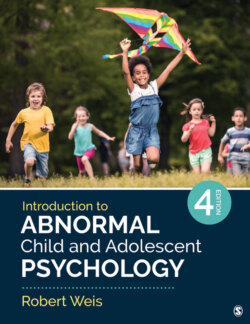Читать книгу Introduction to Abnormal Child and Adolescent Psychology - Robert Weis - Страница 141
На сайте Литреса книга снята с продажи.
Weighing Benefits vs. Risks
ОглавлениеThe two most important ethical principles that guide all helping professions are beneficence and nonmaleficence. Beneficence involves balancing the benefits of one’s actions against the risks or costs involved; nonmaleficence means avoiding harm or inflicting the least discomfort possible to reach a beneficial outcome. When conducting research, psychologists must weigh the benefits of the study against the possible harm or discomfort that participants might experience by participating in it.
First, a study must have clear potential benefits that outweigh possible costs. For example, Dr. Hall might want to examine the effects of a school-based behavior therapy program for young children with ADHD. The potential benefits of this treatment include improvements in children’s attention, behavior, and academic skills. These benefits must outweigh the possible costs of participation, such as missed class time. Second, studies that cause extreme distress or physical harm are not permitted, even if they have the potential to be scientifically informative. For example, a researcher could not deny children with ADHD access to effective medications or other treatments simply to examine the long-term effects of ADHD on their development and academic outcomes.
